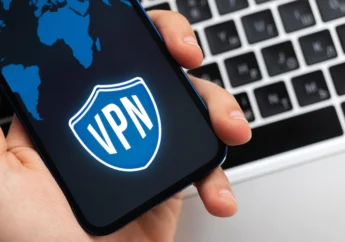Blockchain Applications Go Beyond Cryptocurrencies
by Arnab Dey Technology Published on: 30 November 2022 Last Updated on: 07 December 2022

Blockchain technology was first developed to support Bitcoin, the first cryptocurrency created. However, other industries have adopted it, and this rate is likely to increase in the future. According to CBInsights, the annual blockchain spending will hit $16B by 2023.
Blockchain helps companies stay on top of their competitors, and that’s because it makes operations seamless. Besides allowing instant transactions and reducing costs associated with traditional banks, this technology also ensures data security.
Blockchain has worked exceptionally well, fulfilling its initial purpose of maintaining a decentralized record of transactions. This technology is at the heart of many very popular cryptocurrencies, such as Bitcoin and Ethereum.
If you’re new to the market, figuring out how to buy cryptocurrency can be pretty confusing – but it’s not impossible! However, you should first learn the basics, and one crucial aspect is understanding the blockchain and how it works, so make sure to do thorough research on the subject. As mentioned, blockchain has multiple use cases and is now transforming different sectors. Let’s explore the other applications of this innovative technology!
Real estate

Real estate transactions usually involve a lot of paperwork, as the process is complex. Firstly, you have to verify ownership and financial data. Once you’ve done that, the next step is to transfer titles and deeds to different owners.
Using blockchain applications in real estate provides security and makes verifying and transferring ownership easier. This has many benefits, such as increasing the speed of transactions, reducing paperwork, and saving cash.
Plus, it saves time, as all the tasks are completed electronically. Blockchain brings new opportunities to the real estate sector. It allows sellers to provide transparency during the process and enables buyers to track a property’s history. Since the transactions are recorded on the blockchain, they can’t be deleted or tampered with, assuring buyers and sellers that their transactions are safe.
Insurance
Blockchain applications have the potential to disrupt the insurance sector by providing new types of insurance, better risk assessment and pricing, and boosting back-end efficiency. Blockchain offers enhanced transparency for insurance providers and customers through smart contracts.
Moreover, since all the claims are recorded on the blockchain, customers aren’t likely to make a claim for the same event twice. Cost savings is a significant benefit that blockchain brings to the insurance industry.
This technology can automate claims functions by checking coverage between enterprises and reinsurers. Similarly, it can also automate payments between different parties in the claim process and, thus, decrease administrative expenses for insurance companies.
Voting
Since blockchain can hold your personal identity information, voting through blockchain also becomes possible. This technology ensures there will be only one vote from everyone, enabling access only to eligible voters.
Moreover, it makes voting as seamless as just pressing a few buttons on your mobile phone. Through encryption and smart contracts, blockchain keeps voting safe from fraud, making it transparent while ensuring voters’ identities are not exposed.
Artist royalties
Artists put a lot of effort and time into creating their pieces, but unfortunately, they aren’t compensated for their work as they should. Technology has made streaming possible, changing how music is discovered and shared.
It turned sound waves into bytes which are borderless and flow through all the information Internet users consume. But blockchain technology is challenging the notion through the idea that a file’s ownership is valuable.
Through blockchain, artists can ensure they are fairly paid for their pieces, as they can track the files distributed across the Internet. Since one of blockchain’s features is ensuring a file doesn’t exist in more places, it can also effectively reduce piracy. Furthermore, this technology can help monitor music on streaming services, offering greater transparency. Using smart contracts assures them they will get the money they worked hard for.
Healthcare

The medical industry has been immensely affected because of its inability to ensure secure access to patient data. But blockchain can change that by facilitating customizable openness and upholding top security standards.
This reduces costs and makes it easier for patients to access medical services. Blockchain can boost the system’s speed for pulling medical records, meaning that patients will get more timely treatment.
Moreover, this technology allows medical experts to get accurate data about their patients and, thus, ensure they can get the best care and improve their health. For instance, if the database includes insurance information, doctors can verify that and check whether patients’ treatment is covered.
NFTs
Non-fungible tokens are designed to create scarcity, ensure digital files are secured and provide ownership. NFTs can be any digital file, including a video, an image with a piece of art, and even real estate.
The blockchain allows you to secure your NFTs and ensure the piece of digital art isn’t replicated. NFTs have several applications; they are used in fashion, music, gaming, supply chain, and ticket sales. They can even be a means for charities to fundraise.
Market efficiency is one of the most evident advantages of NFTs – using a digital asset instead of a physical one removes intermediaries, thus streamlining processes. NFTs can eliminate the need for agents, allowing artists to form deeper connections with their audiences.
Is blockchain the future of the Internet?
The rise of blockchain technology will undoubtedly lead to a significant Internet transformation through its decentralized feature. It brings a new way to look at data that encourages trust, making the information verifiable and ensuring the transparency of transactions. Blockchain’s future looks bright, and it will likely disrupt even more sectors in the future, making a difference in how businesses operate.
Moreover, it also plays a role in remediating the issues of IoT, which poses a significant obstacle because it depends on centralized platforms, making data susceptible to cybercriminals.
Blockchain can make the completion of smart contracts autonomous, thus building a web of connected devices that allows users to control their data. Blockchain has proven to be very reliable, so more companies will likely adopt it in the future as well in order to improve their operations and benefit from everything this revolutionary technology has to offer.
Read Also:







































































































